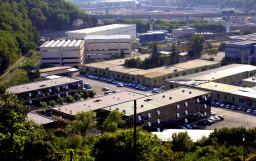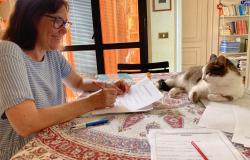Tension at Genoa's courthouse mounted on Monday, as judges withdrew to consider their verdict following a major trial into alleged brutality by state officials during the 2001 G8 summit.
Lawyers, defendants and the alleged victims gathered for the verdict, which was expected late Monday evening. The courthouse was scheduled to remain open later than usual for the announcement.
In total, 45 state officials stand accused of abusing anti-globalization protestors taken into custody following disturbances at the summit seven years ago.
The charges include abuse, fraud, criminal coercion and inhuman and degrading treatment.
In total, 252 demonstrators said they were spat at, verbally and physically humiliated and threatened with rape while being held at the Bolzaneto detention centre.
The prosecution, which wrapped up its case in March, requested jail terms totalling 76 years for police officers, prison guards and doctors working at the centre.
The individual terms ranged from six months up to nearly six years.
But lengthy trial proceedings and the statute of limitations mean that even if convicted, none of the defendants will serve any time.
Instead, a guilty verdict would pave the way for a major compensation claim.
Of the 252 demonstrators who claimed abuse, strong evidence emerged in at least 209 cases considered during the trial.
The victims are expected to sue the police and prison services for around 70,000 euros a head, bringing the total potential payout to 15 million euros.
A guilty finding would also have great symbolic resonance in Italy, where the aftermath of the violence has drawn constant press coverage and opposition accusations of a political cover-up.
More than 300,000 demonstrators converged on Genoa for the G8 summit in July 2001.
During two days of mayhem, a 23-year-old protestor was shot dead while attacking a policeman, shops and businesses were ransacked and hundreds of people were injured in clashes between police and demonstrators.
The Bolzaneto proceedings are one of three major trials to emerge from violence at the event.
In one case, 29 top-ranking police officials are being tried over a raid on a school used as sleeping quarters by protesters during the event.
The charges include grievous bodily harm, planting evidence and wrongful arrest.
Most of the 93 demonstrators arrested during the operation were beaten, some seriously, and 63 had to be taken to hospital. Three people were left comatose.
In December last year, another court convicted 24 Italians for their involvement in rioting at the summit.
This was the only trial against demonstrators in connection with the event. Although police arrested dozens of people at the time, all other proceedings collapsed for lack of evidence or were dismissed by judges during preliminary hearings.
A 2001 parliamentary inquiry exonerated the police of having used excessive force but stressed that magistrates were entitled to investigate any individual instances of alleged brutality.
Critics at the time accused the centre-right government of Silvio Berlusconi of a whitewash.
A second enquiry was proposed last year after a top policeman changed his earlier testimony and said he had seen officers commit ''carnage'' during the night raid. However, the proposal was dropped after two centrist parties joined the centre-right coalition in voting against it.




